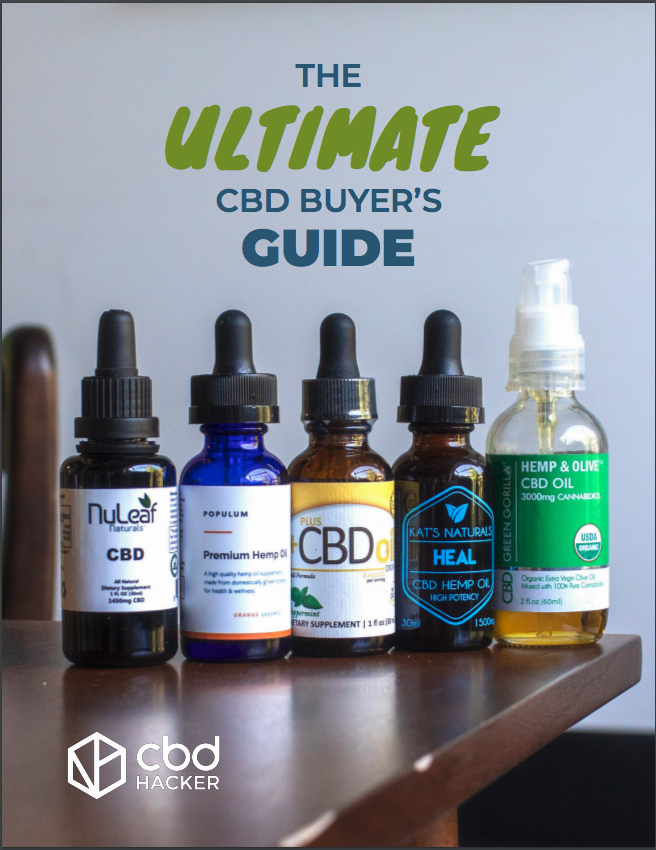If you are thinking about trying cannabidiol, or CBD, for the first time, there’s probably one big question on your mind: does CBD get you high?
After all, if you are looking for relief for chronic pain, anxiety, insomnia, or any of the many other health conditions that people treat with CBD, the goal is usually to be more functional in everyday life. This means that consuming any substance that leaves you feeling noticeably altered would be counterproductive, to say the least.
Fortunately, CBD is not psychoactive.
At least, not in the way that we typically mean when we talk about feeling high. While it may impact mood and perception in some ways, it doesn’t cause the same kind of altered consciousness that comes with consuming the strains of cannabis that we call marijuana.
But if CBD comes from cannabis, and cannabis is psychoactive, why wouldn’t CBD get you high? Read on to get the full story.
Introducing the Endocannabinoid System
To understand how CBD works in the body, first we have to get a basic understanding of the endocannabinoid system. This is a system of neurotransmitters and receptors that is found throughout the body. Its receptors appear in the brain, organs, skin, immune cells, and more.
But the different cannabinoids (and there are dozens of varieties) have wildly varying effects on the body when you consume them.
And these differences even affect the way that we talk about the varieties of cannabis. For example, strains that have high percentages of the dramatically mood-altering cannabinoid are usually known as marijuana, while those that are less mind-bending are often referred to as hemp.
THC, The “Mood-Altering” Cannabinoid
THC, or delta
The name anandamide is derived from the Sanskrit word for joy or bliss, so it’s no surprise that it’s plant-derived analogue THC can trigger euphoric mental states.
So, how can THC affect the mind?
Here’s what the National Institute on Drug Abuse (NIDA) says about THC’s effects:
- altered senses (for example, seeing brighter colors)
- altered sense of time
- changes in mood
- impaired body movement
- difficulty with thinking and problem-solving
- impaired memory
- hallucinations (when taken in high doses)
- delusions (when taken in high doses)
- psychosis (when taken in high doses)
Now, just to be clear, studies have shown that THC has a number of potential medical applications. But many people will feel very noticeably altered if they consume a high-THC product, and that’s not always ideal.
CBD, the “Balancing” Cannabinoid
Unlike its fellow cannabinoid THC, CBD does not have dramatically consciousness-altering effects. When you consume CBD, you’re not likely to lose track of time, or experience impaired motor skills, or get an uncontrollable case of the giggles. Rather, you’re more likely to feel:
- Reduced anxiety
- Pain relief
- Relaxation
- Improved mood
It’s also very likely that you won’t notice any impact on mood or perception at all. For many people, taking CBD feels about as psychoactive as taking an aspirin.
In fact, CBD has been shown to counteract many of the more disruptive psychoactive effects of THC. People who use CBD in combination with THC tend to experience less paranoia and psychedelic-type effects than those who use high-THC strains or products.
CBD and Drug Interactions
In clinical trials, the adverse effects associated with CBD have tended to be mild to moderate—if any side effects were recorded at all.
And it’s likely that some of the reported side effects are the result of drug interactions caused by combining CBD with other medications. This is something that even the World Health Organization noted in a recent statement about the safety of CBD.
CBD can interact with other medications, because the group of liver enzymes that is responsible for breaking down CBD is also in charge of metabolizing a lot of mainstream meds. In practice, this means that if you are taking one of these medications along with CBD, its effects might be more or less intense than usual.
This is one of the reasons why we strongly recommend that you talk to your doctor before you begin using CBD, especially if you take any other medications. Your doctor may wish to change your dosage to avoid increased side effects.
But My Friend Said That CBD Made Them High!
Sometimes we see reports from people who swear up and down that CBD makes them feel high. And there’s still a lot that we don’t know about how CBD works in the body, so we don’t want to totally dismiss the possibility that some people might have a different reaction.
It’s also quite possible that if a CBD product makes you feel altered, there could be other components that are causing the psychoactive effect. For example, you might be reacting to other plant compounds like THC or myrcene, which are known to have an impact on mood.
Or the product you are using might contain hidden ingredients that are causing the psychoactive effect. Disreputable CBD producers have come under fire for including so-called “synthetic cannabinoids” in their products.
To avoid this possibility, always make sure that the product you are using is made by a reputable producer that provides third-party lab results for customers to review.
All in all, if you are taking an authentic, quality CBD product, and you’re not taking any other medication or combining it with alcohol or other mood altering substances, it’s extremely unlikely that you’ll feel any psychoactive effects when consuming CBD.





